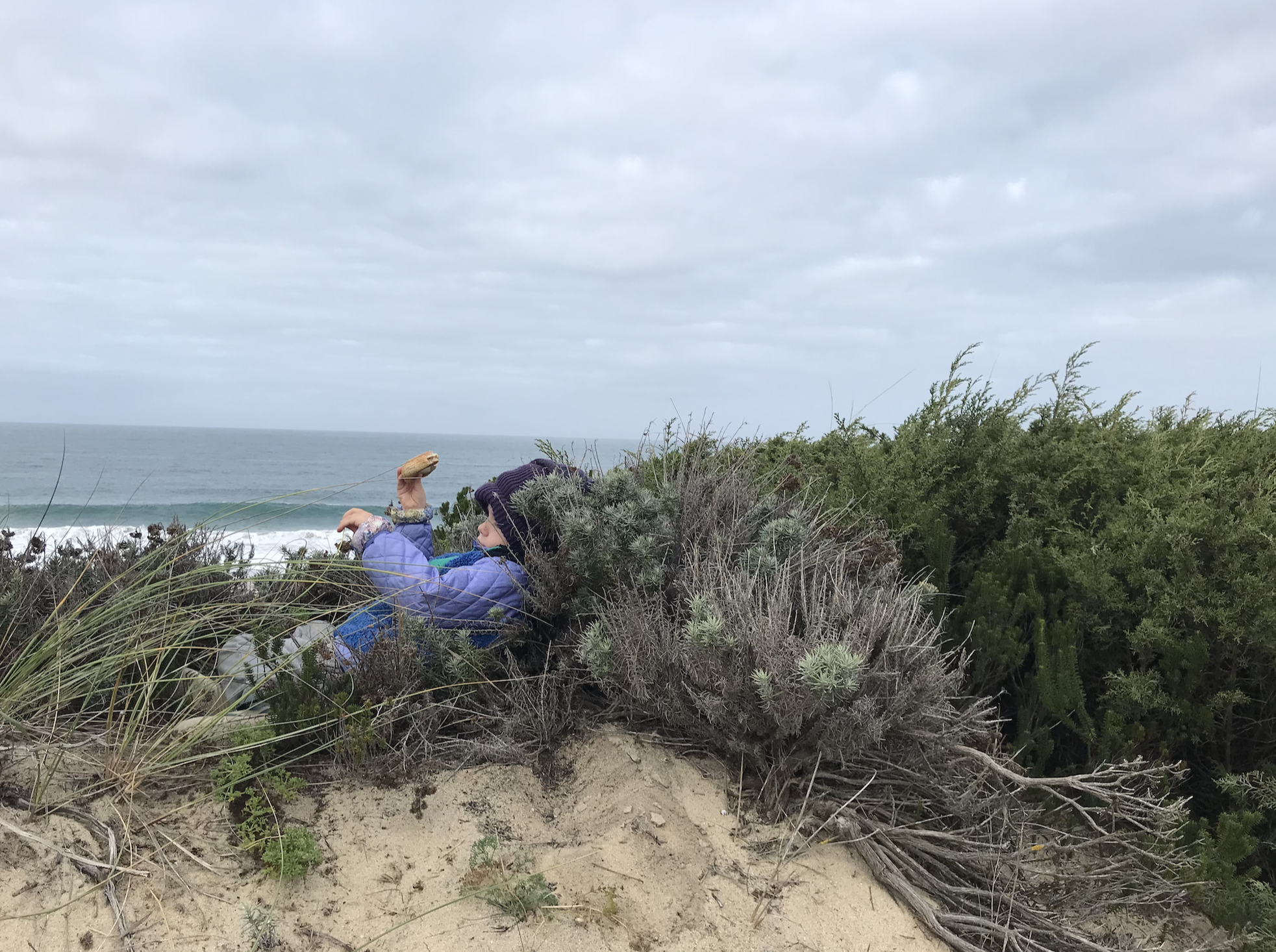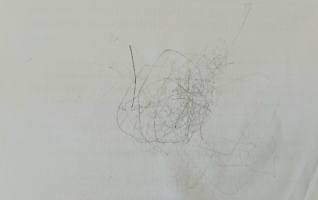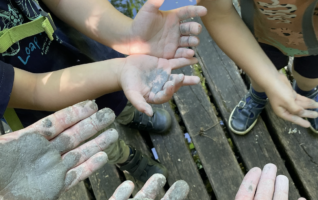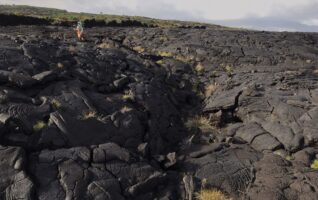I’ll take you to places you’ve never been, weather songs – audio works, 2021-22

[the children] seemed to be able to grasp and hold the deeply ecological understanding that all living beings are both dependent on and vulnerable to each other. In visceral and affective ways, they apprehend that we cannot be separated off – no matter how wild the invasive legacies we are grappling with.
Find a peaceful place and sit quietly.
The bird is in the forest […]
During the winter months of late 2021-2022, my family and I stayed in Nazaré, Portugal, where the first ideas were formed from which the Sea-Water Amplification (SWA) educational and research environment emerged. After previous experiences, we chose the Praia de Norte and Praia do Sul coastlines as the research platform for our ocean activities. These places are particularly dynamic compared to the summer months. We collected a lot of diverse material on this coastline, which was partly processed into Instagram posts, but also significantly translated into our thinking and research into outdoor pedagogy and weather worlds.
One of our main strategies for research on understanding is to repeatedly return to the same places. By repeatedly returning to the same places, one can (not only in children) observe how things change over time and experience a new unexpected encounter. Children’s growing self-awareness of familiar places and sounds is manifested as a distinctive element of Pedagogy for Extended-Interspecies Listening. Negotiating close multispecies encounters is always a sensitive step, which can also be called relational choreography. We are beings moving through the world. Whatever the initial way of motivation, we evolve through the tactile-kinesthetic body. This body is itself the object of motivation and intention. We get together, we learn our bodies and we do it through movement.
The audio work I’ll Take You to Place You’ve Never Been waited in the archive for the moment when it would be processed and included in the context of Pedagogy Extended-Interspecies Listening. Its author is our son, Vavrinec Reza, who was four years old when these recordings were made. He is also a member of the Pedagogy for Extended-Interspecies Listening research team and its functioning has a significant impact on the whole form of research.
Water, fog, wind, reeds, beetles, puddles, roads and so on are moving actors in our encounters, and each influences the other, which requires us to listen with all our senses, to be open to becoming different, and to learn to be vulnerable.
Every lost voice, whether human or more-than-human-wild, erodes our knowledge of who we are. Listening to these encounters does not mean being bound by what we already know. We need every voice to speak its version of the truth out of silence. We need every story to be able to navigate our lives. When we lose stories, our understanding of the world is less rich, but also less true.
Weather songs (small stories) suggest that there are always things uncertain and unfinished that inevitably and continuously „leak“ beyond attempts to tell abstract „big“ stories. Weather songs (small stories) are more „narrative descriptions“ of partial and unsolvable encounters than stories with a neat beginning, middle and end. These stories often begin with a fleeting moment or happening, which then takes us somewhere else. It is impossible to know where these moments or happenings will go, and we are unable to predict their outcome. It requires us to be open.



